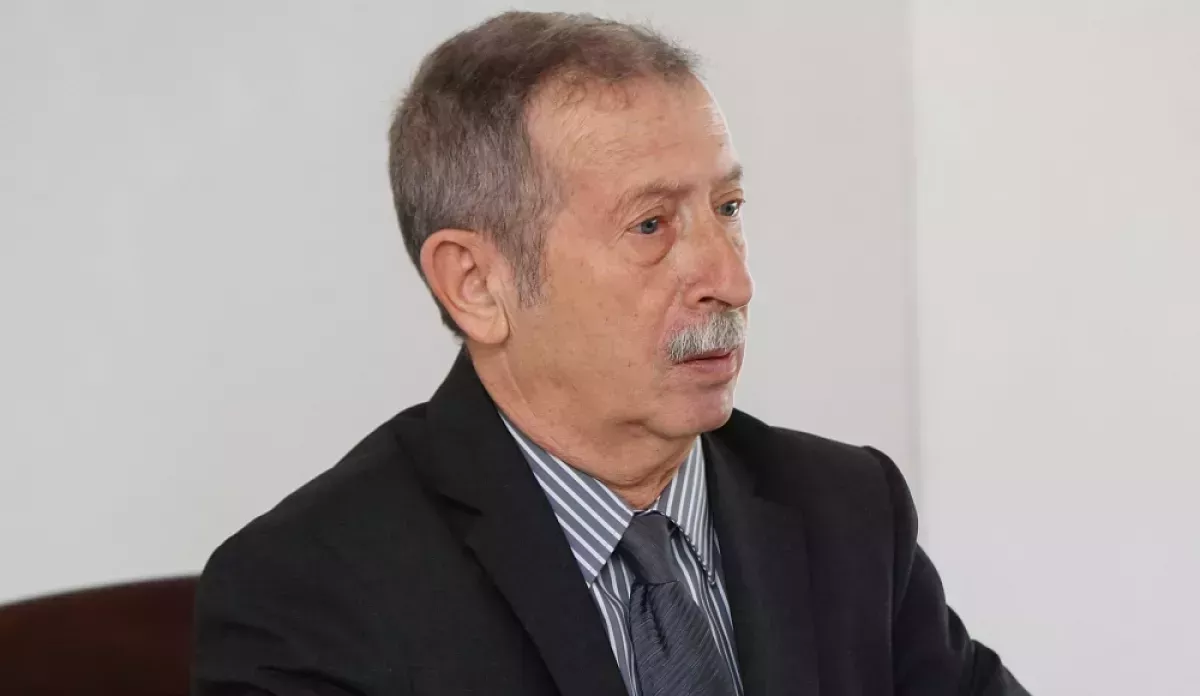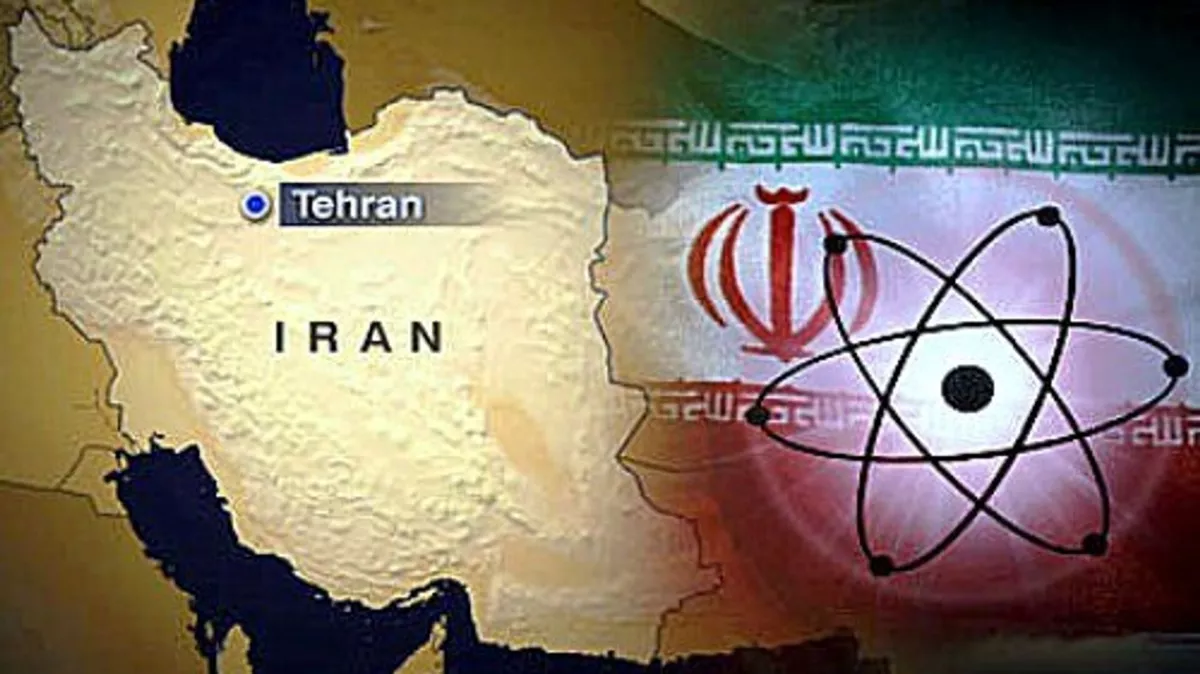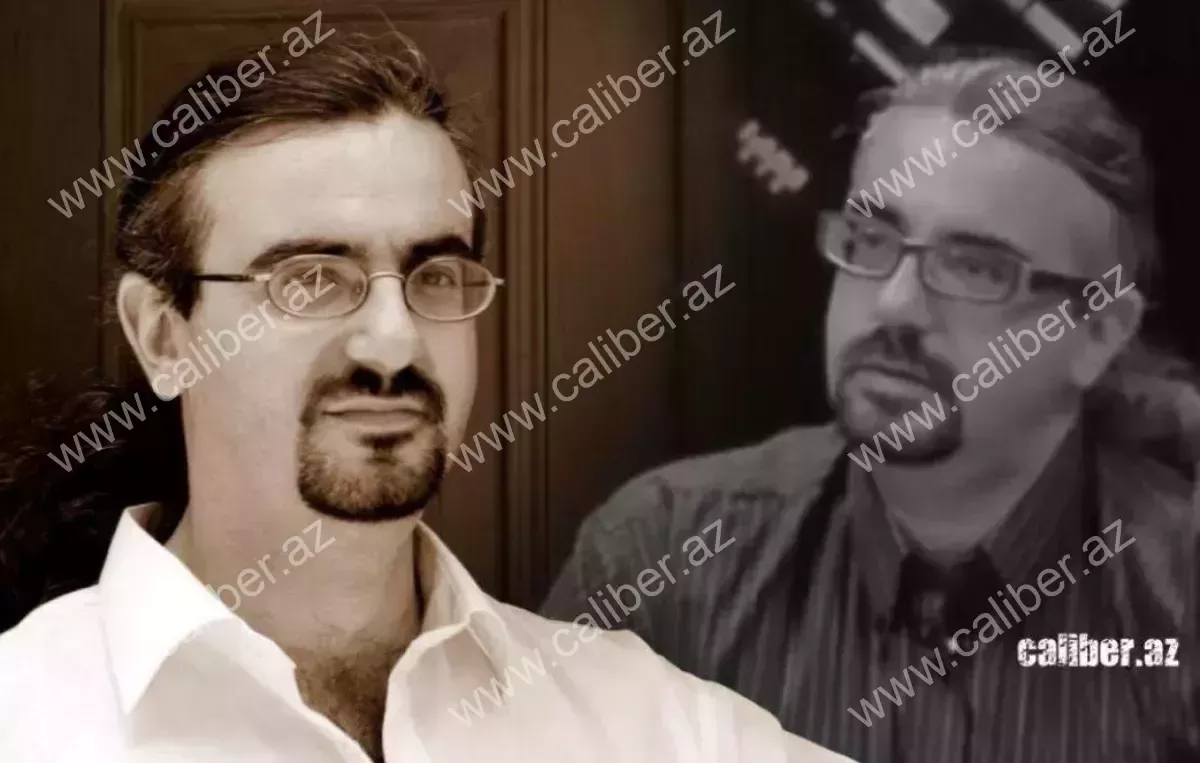Iran’s nuclear quest: A deliberate dialogue with the West to buy time? Expert insights
The President of Iran recently arrived in Moscow, where he signed a comprehensive strategic partnership agreement with Vladimir Putin. Ahead of this meeting, Ali Larijani, senior advisor to Iran’s Supreme Leader Ayatollah Ali Khamenei, made multiple secret trips to Russia, likely seeking assistance with Iran's nuclear programme. Tehran has faced significant setbacks due to Israel's actions and the recent overthrow of Bashar al-Assad’s regime in Syria.
Larijani’s visits to Russia have focused on securing support for advancing the nuclear programme and bolstering Iran’s air defence capabilities, according to reports from The Times. Sources within Western intelligence have suggested that Tehran seeks to expand its cooperation with Moscow, particularly in the nuclear field, where Russia has thus far only assisted in the operation of Iran’s nuclear power plant.
“Since they are deepening their strategic relationship, and Russia is dependent on Iran for missiles and drones, there is concern that Moscow is ready to cross previously drawn red lines on the Iranian nuclear programme,” a Western intelligence source told The Times.
Larijani, a former speaker of Iran's parliament, a key participant in negotiations on the nuclear programme, a high-ranking officer in the Islamic Revolutionary Guard Corps (IRGC), and a trusted representative of Supreme Leader Khamenei in handling complex issues, notes The Times. Until now, Moscow, like other nuclear powers, has been unwilling to see Iran develop nuclear weapons, said Dr William Alberque, NATO’s former director of nuclear non-proliferation and a fellow at the Henry L Stimson Center in Washington and former NATO Director for Nuclear Non-Proliferation. "But maybe Russia made the decision, about the time when Iran started sending them thousands of drones to use in Ukraine, that nuclear proliferation is not such a big deal,” Alberque stated. Although Iran does not need help building a bomb, it would “certainly benefit from clandestine cooperation with Russia,” he added.
According to estimates by the International Atomic Energy Agency (IAEA), if Iran begins enriching uranium to the level required for an atomic bomb, it could obtain the necessary material within a matter of days or weeks. However, Alberque notes that the bigger challenge lies in delivery systems. To manufacture the remainder of the weapon and place it on a suitable missile, such as a ballistic one, could take anywhere from several months to a year.
Moreover, according to Western intelligence sources, Iran is seeking to acquire the latest version of the Su-35 fighter jet to enhance the combat capabilities of its air force; it is even reported that such aircraft have already been purchased. Tehran also wants to restore air defence systems that were destroyed by Israel during airstrikes last year. However, the S-300 surface-to-air missile systems supplied by Russia failed to intercept Israeli missiles.
Tehran also needs Moscow's help to restore the combat potential of Hezbollah, which suffered significant losses due to Israeli actions. Larijani requested assistance in supplying the militant group, which, along with Iran and Russia, had supported Assad in Syria. However, the allies' problems on other fronts prevented them from helping the dictator when the armed opposition turned against him.
At the same time, it was reported that the third round of talks on Tehran's nuclear programme between Iran, Germany, the UK, and France in Geneva was "constructive." This was stated by Iran’s Deputy Foreign Minister Kazem Gharib Abadi on his social media account. "We discussed ideas involving certain details in the sanctions-lifting and nuclear fields that are needed for a deal," Abadi noted. According to the deputy minister, the parties agreed to continue the negotiations and emphasised the importance of creating a favourable atmosphere to reach an agreement.
On May 8, 2018, during Donald Trump's presidency, the United States unilaterally withdrew from the nuclear deal signed with Iran in 2015 and reimposed sanctions on the country. In April 2021, negotiations began in Vienna aimed at resuming the agreement with Iran and bringing the U.S. back into the deal. However, due to a number of disagreements between Washington and Tehran, the talks were suspended in early September 2022.
In his December 2024 statement, the Director General of the International Atomic Energy Agency (IAEA), Rafael Mariano Grossi, reported a meeting in Tehran with Iranian President Masoud Pezeshkian and Foreign Minister Abbas Araghchi. According to Grossi, the parties are in the process of initiating new negotiations.
So, on one hand, Iran is trying to obtain additional nuclear technologies from Russia, while on the other hand, it is holding talks with leading European countries about a new nuclear deal. How can these two efforts coexist? Is there a contradiction here?
Foreign experts shared their thoughts on this issue with Caliber.Az.

Dr. Vladimir Mesamed, a renowned expert on Iran from the Institute of Asia and Africa at the Hebrew University of Jerusalem, notes that the signing of a comprehensive Russian-Iranian strategic cooperation agreement in Moscow is a significant event for both countries.
"This is undoubtedly an important development, especially considering that in recent years, Iran has been striving to establish strategic cooperation with countries it relies on in reshaping the global political order. In this context, this agreement holds considerable importance.
The first major agreement Iran signed in recent years was the Iran-China agreement. It was signed between 2020 and 2022—I'm mentioning two dates because it resurfaced twice. However, to this day, no one knows exactly what the agreement entails, although the main points have been discussed multiple times, and the leaders of both countries have spoken about it. This agreement, though, remains quite opaque. It was not even ratified by the Iranian Islamic Consultative Assembly, meaning the Iranian parliament did not approve it—it stands somewhat above this process.
And now, with the arrival of Iranian President Mahmoud Pezeshkian and the signing of the document with Russia, it is important to note that this happens just before the inauguration of U.S. President Donald Trump. In Iran, it is said that this document covers the full potential of relations between Iran and Russia, affirming the strengthening of trust in Russia so that it can move forward in negotiations with the Trump administration with a greater sense of its own potential. In other words, it signals that Russia's potential will undoubtedly increase after signing the agreement with Iran. However, what is new here? Both countries affirm that they are advancing based on this anti-Western foundation, and this anti-Western stance has been an official part of Russia's narrative for a shorter time than Iran's, which has been voicing it since the Islamist revolution, i.e., since February 1979.
In Russia, this has been openly discussed recently, especially since the start of the war in Ukraine, when this anti-Western sentiment became a prominent theme.
Iranian politicians have already spoken about this new agreement in advance. For example, the foremost Iranian expert on Russia, Mehdi Sanaei, who once worked at the Iranian embassy in Moscow, directly stated that it is very important for them that this was signed 72 hours before Trump took office. This shows that, before such an important moment in U.S. history, as Trump's coming to power, we have found ourselves with an enhanced joint strategic agreement," the expert explains.
However, in principle, Dr. Mesamed says, when you think about it, there was no real need for this new agreement.
"The fact is, there has already been a Russian-Iranian cooperation agreement in place. It was signed in 2001 for 20 years. In 2021, it reached its expiration, but there is a provision in the agreement stating that if neither party opposes it, the agreement is automatically extended. So, it has been extended until 2026.
However, last year, Russia made a statement noting that the leaders of both countries believed the current agreement no longer met modern needs and could not address the challenges of today. The dialogue between the two countries today cannot be compared to what existed 24 years ago.
As a result, they decided to update it. It’s worth noting that the Iranians worked on drafting the new agreement, with Russia simply agreeing to it. The updated version includes many aspects that were absent from the previous agreement. For instance, there is a special section on how the two countries should interact at international forums and work towards adopting decisions deemed vital for both nations, which are aligned on an anti-Western platform.
Overall, many of the cooperation points are consistent with the previous agreement. These include collaboration in new technologies, information security, and cybersecurity. A very broad military and defence cooperation will also be involved, which is of mutual interest to both Russia and Iran.”
Furthermore, Dr. Mesamed suggests there is expected cooperation in the field of nuclear energy. He believes this is significant, noting that it is not just nuclear energy but broader nuclear cooperation. "Iran is approaching the possession of an atomic bomb, and perhaps cooperation with Russia, which has recently increasingly taken a position akin to fostering nuclear threats globally, will be beneficial. Russia can provide substantial assistance to Iran in the final stages. We know that in Iran, the situation is such that, alongside significant achievements—such as accumulating a nuclear stockpile far exceeding the limits imposed on it—it has raised its enrichment level from 3.67% to 60%, and in some cases even 80% and 84%. Iran has introduced new types of centrifuges, among other developments. However, at the same time, it is also working on the legal framework.
Recently, there have been several letters from Iranian parliamentarians and appeals to the country’s spiritual leader, Ayatollah Ali Khamenei, urging him to officially permit, through a fatwa (which, in modern terms, allows production and storage but not use), so that it does not contradict the use of nuclear weapons. And, in my view, Iran is precisely moving in that direction," the expert added.
However, Dr. Mesamed points out that in Iran, there is also concern that, at this stage, Russia may partially reconsider its relationship with Tehran.
"This is connected to the fact that the signing of the document could elevate the relationship between the two countries to a significant level. But it’s important to note that Russia is currently very focused on advancing its possible dialogue with the United States. As a result, some analysts within the Islamic Republic of Iran (IRI) believe that Tehran’s goals and interests might be overshadowed by behind-the-scenes deals between Putin and Trump. The de-escalation of their relationship could be a complex and lengthy process, and it’s possible that Tehran’s interests may be sacrificed in exchange for the cessation of the war in Ukraine.
Therefore, the key issue is what status and position Iran will occupy in the relations between Washington and Moscow following the second administration of Trump. For this reason, some Iranian media outlets and politicians suggest that Iran may take steps to reduce its ties with Russia, especially after the fall of Assad’s regime in Syria. But this remains a matter for considerable debate," the expert said.
The second issue, Dr. Mesamed highlighted, is how Iran is progressing in its negotiations with the West.
"Iran has been pursuing a dual policy recently. On the one hand, they have signalled their readiness for dialogue with the West. A clear indication of this is the fact that two rounds of negotiations have already taken place—at least two of which have been reported in the media. These rounds were led by two Iranian diplomats, Majid Takht-Ravanchi and Kazem Gharib Abadi, both of whom are experienced negotiators. The first round of their talks, which included a meeting with Enrique Mora, the Deputy High Representative for Foreign Affairs of the European Union, focused on key issues of cooperation. Later, there was a meeting at the deputy foreign ministers' level, involving the European troika—France, Germany, and the UK. Again, these discussions were more theoretical and principled rather than practical.
Another round of negotiations took place on January 14-15 this year. However, serious issues were not resolved there either.
Before this, numerous publications were emphasizing the need to establish a dialogue with the International Atomic Energy Agency (IAEA). But here too, no progress was made. We remember that during the last IAEA Board of Governors meeting, a serious decision was made to reprimand Iran for violating IAEA inspector protocols. However, it seems Iran did not draw any conclusions from this, as even after the Board meeting, they continued the same policy as before.

On the other hand, Iran has repeatedly signalled, especially recently, that it is willing to engage in dialogue with the United States. However, the latest statement from Abbas Araghchi—who undoubtedly has significant experience in nuclear negotiations, having been a key negotiator during the tenure of Mohammad Javad Zarif, the former foreign minister—declares that no progress will be made in this area until Trump returns to power. What is concerning here, though, is that Iran has recently shown a particular focus on diplomatic activity in the Sultanate of Oman. Oman, and its capital Muscat, have long been associated with secret negotiations. The talks that took place over 12 years and ultimately led to the signing of the Joint Comprehensive Plan of Action (JCPOA) were facilitated by Oman. Recently, new contacts have emerged, and it seems that negotiations may once again be taking place in this venue, with Oman continuing to play a key role in driving such talks.
In recent days, there have been media reports in Iran lamenting the country’s missed opportunity for negotiations with the European troika, as it failed to conduct talks during the period when Josep Borrell, who had a more pro-Iranian stance, was leading EU diplomacy. Now, with the arrival of Ursula von der Leyen’s successor, Kaja Kallas, who is less sympathetic to Iran, the mood has shifted, and she has already made public statements on the matter.
"Time has been lost, especially on the international front," Dr. Mesamed remarked. "The High Representative for Foreign Affairs and Security Policy, Kaja Kallas from Estonia, who has a strongly pro-Western political stance, is unlikely to allow Iran to advance as it did in past negotiations with the West, particularly without real justification. She will likely ask why Iran is being afforded preferential treatment when it doesn't deserve it, as it continues its gradual but steady pursuit of developing a nuclear bomb. In this regard, there is an imperative to block Iran's path."
Dr. Mesamed also noted the criticism aimed at Iran's current foreign minister, Dr. Abbas Araghchi. He has been compared unfavourably to his predecessor, Mohammad Javad Zarif, with critics arguing that Araghchi is much weaker and lacks personal initiative.
“Although Araghchi has claimed readiness for negotiations with both the U.S. and Europe, Iranian media, including Sharq newspaper, assert that he has failed to ease tensions with Europe. Under the current administration, the issues have become much more serious than they were under the previous foreign minister. Therefore, it seems that the problem lies in the personnel; the current foreign minister simply cannot move things forward, and instead, all he is doing is missing opportunities. This is the issue currently discussed in Iranian media," Dr. Mesamed concluded.

As stated by the Iran expert and journalist, Michael Borodkin, there is no contradiction in this approach.
"Everything serves one purpose — to buy time to complete the nuclear program and achieve the intended goal, which, I remind you, is at least to have all the necessary components for creating nuclear weapons, such as sufficient weapons-grade uranium, detonators, and so on. At best, the goal is to actually create the weapon and place it on combat duty. This is why negotiations with Russia are ongoing for the acquisition of new technologies. And this objective is precisely what drives the expression of readiness for dialogue with the West, primarily with Europe," explained the researcher.
Thus, Borodkin believes, Iran hopes to buy time and prevent harsh actions from the U.S. to complete work on its nuclear weapons.
"Tehran is counting on Europe to convince the new Trump administration to give the dialogue another chance, and the Iranian regime knows how to drag out negotiations for a very long time. During all this time, work on the nuclear program will continue at full speed," Borodkin suggests.








